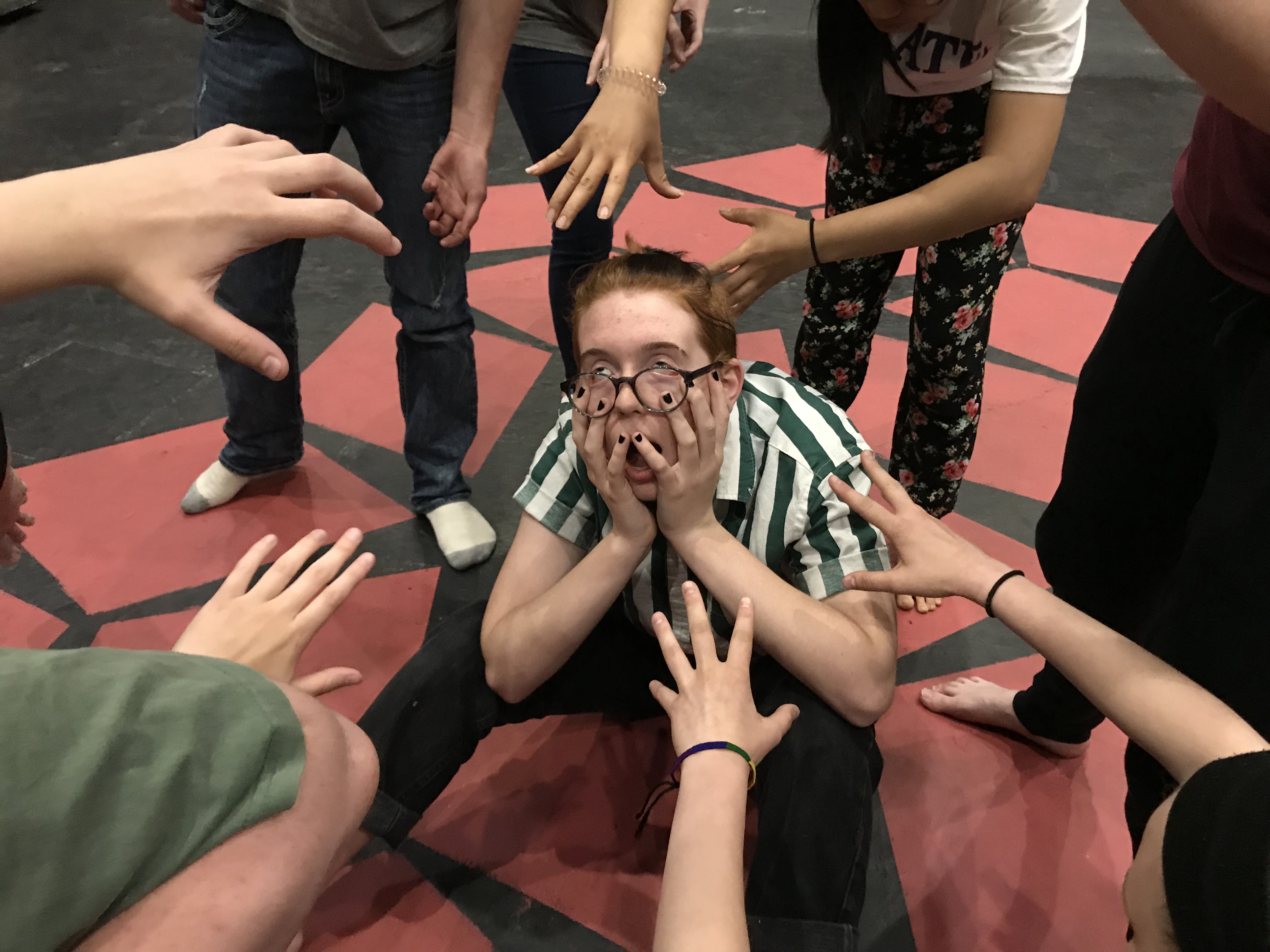Ahhhh, breathe it in folks. That is the smell of Target Story Decision day. Debate hangs deliciously in the air as we look over our impressive list of ninety-four suggestions for the Target Story. We are all beyond excited to get to the end of the session when we will know which of these stories we will write our plays about. But before that can happen, we must work our way through the list to a clear winner. First, Gwethalyn reminded the group what makes a good Target Story: it is a well-known part of our culture, and it has enough fodder in it for us to question. If the story belongs to a part of our cultural zeitgeist, then our audiences are already familiar with it. This way, they have preconceived notions of the Target Story that we can use to bend, subvert, and transform. Without audience knowledge of the story we are trying to tell (or retell), they will not recognize the techniques we are using on it. Also, if the story has enough in it for us to examine, then we will likely be able to find a lot of themes, ideas, or morals to put under our lens and show to the audience. Why do we celebrate this tale in our culture? Is it actually teaching us what we think it is? These are excellent questions to begin asking when analyzing a particular story. With all of this in mind, the participants were ready to begin choosing.
Starting off, the participants all get two votes. Anything not voted for is immediately removed from the list and not talked about. After that, everything is fair game for discussion. Generally, we start with summaries of each suggestion, hoping to give everyone an idea of what it would be like to work with that text. But, as the discussion goes on, more votes are taken, our list becomes smaller, and it really does become a debate. “Is there enough there for all of us to have a different take on it?” That’s a fair question, as we will have multiple small groups and two whole group pieces who all need enough material to make different plays. “Is it well-known enough?” This question gets thrown around a lot and is probably the most debated. Some things may seem well-known to our young participants, but in actuality have little to no impact on an older audience or vice versa. As the discussion goes, the questions asked also become harder to answer. “Is that story over-done?” Some participants fear that a certain suggestion has become old, tired, and left with nothing to say about it. On the other hand, other participants may find that this is the perfect reason to choose it. “Does that story have something to say, or is it just dark?” Even though a story may seem perfect at first glance for questioning in our writing, some participants feel that is actually devoid of anything interesting besides doom and gloom.
As questions get asked, each participant makes their points, and new votes are taken. The list gets smaller and smaller: Nineteen suggestions. Then eight. Finally, a top three. At this point, the debate is intense, as the participants don’t want to pick the “wrong” story. But, by this point, all that remains on the list is perfect for our purposes. With one last round of discussion, participants attempted to win each other over to their side. And, with one last round of voting, a winner was declared:
RAPUNZEL
That’s right! The fairytale about the princess with the long hair, stolen away and locked in a tower by a witch, and saved by a dashing prince is this year’s target story. Seems simple enough, right? But did you remember that Rapunzel’s father is forced to give her up to the witch after stealing vegetables from her garden to satisfy his wife’s pregnancy cravings? What about the prince who jumps from the tower out of despair when he learns Rapunzel has been banished to the wilderness? Or that Rapunzel must give birth to twins on her own, even though she has no idea what being pregnant even is? Well, all that and more is certainly up for review when the participants decide what they want to write about in their small groups.
Speaking of small groups, after the Target Story had been decided, the participants received their small group assignments. This year, we will have three small groups, writing and performing in the styles of Pinter, Wellman, and Open Theater. Additionally, our whole company pieces will be under the influence of Grotowski and Cocteau. Now, with their styles and the Target Story chosen, the participants have everything they need to begin creating their pieces. But, before they do that, one last thing! Group shapes and a machine inspired by Rapunzel. If these exercises reveal anything, it’s that our participants are going to have a lot to say about our Target Story.






Leave a Reply
You must be logged in to post a comment.